Why you can trust Tom's Hardware
We tested the XV282K first in its Standard mode to record default values, then switched to User for the calibration. The color mode in both cases was set to General, which corresponds to the monitor’s full native gamut.
Grayscale and Gamma Tracking
Our grayscale and gamma tests use Calman calibration software from Portrait Displays. We describe our grayscale and gamma tests in detail here.
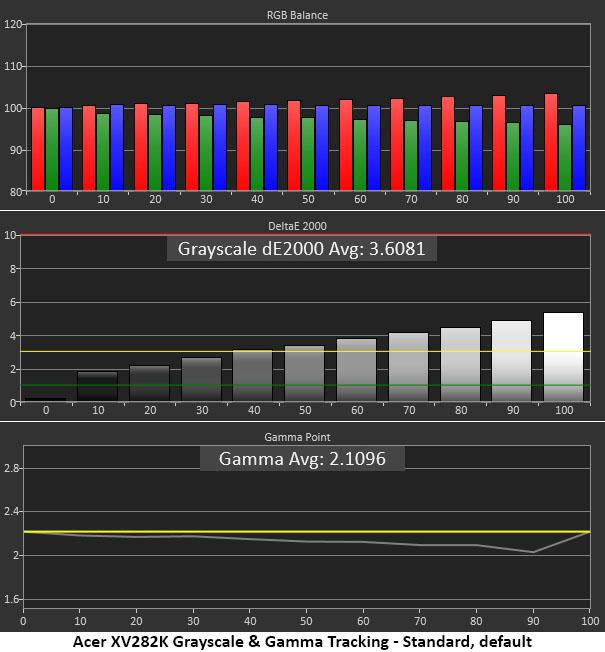
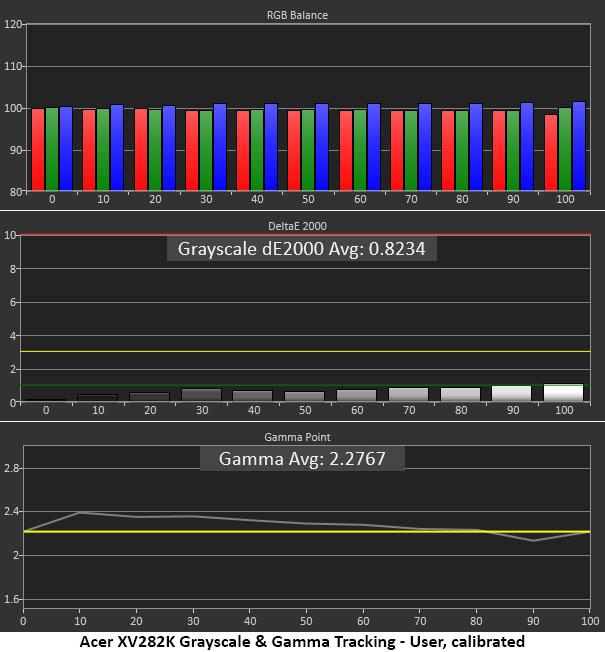
Most will be satisfied with the monitor without doing any calibration. We saw a faint purple tint when viewing grayscale step patterns, but this error was hard to spot in actual content. Gamma is light, which flattens the image a bit.
Calibration improves grayscale tracking to an average error of just 0.82 Delta E (dE). All errors are now less than 1dE across the brightness range, excellent performance. We chose to change the gamma preset to 2.4 because it came closer to the 2.2 spec, and the improvement in image depth was visible. Shadows become slightly darker, which helps broaden the perception of contrast, and highlights are now more detailed.
Comparisons
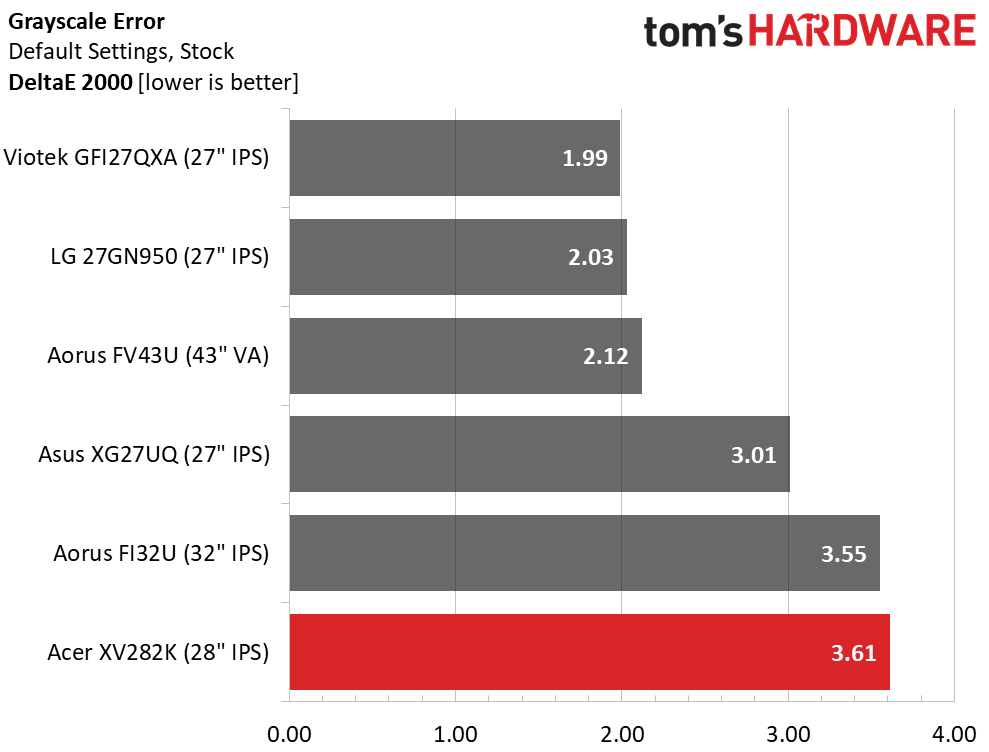
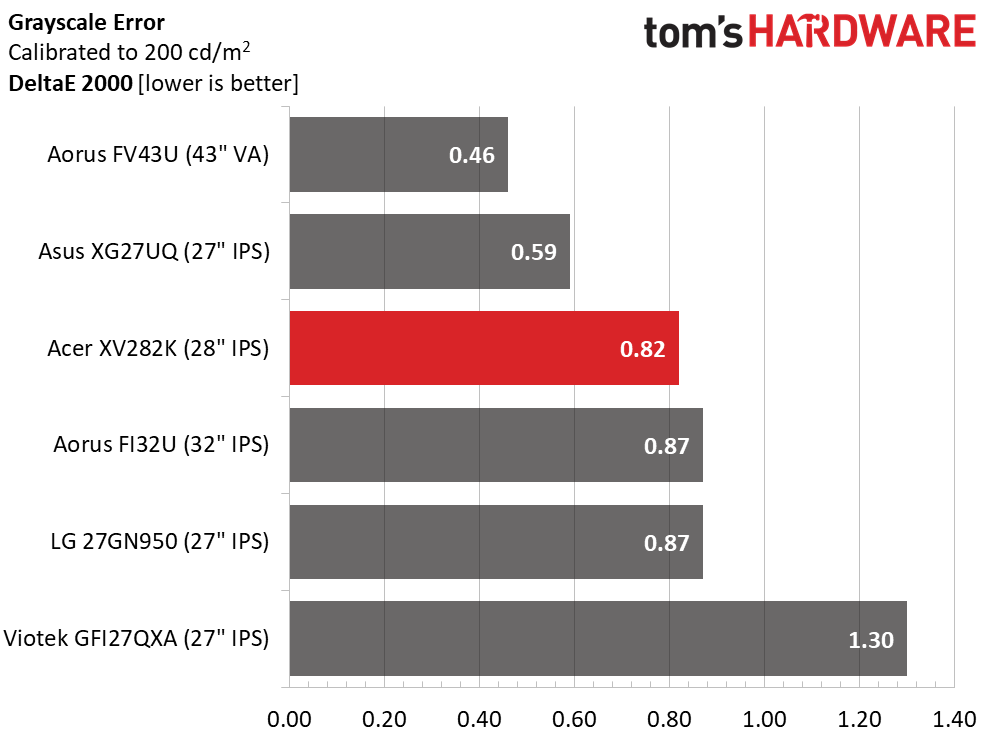
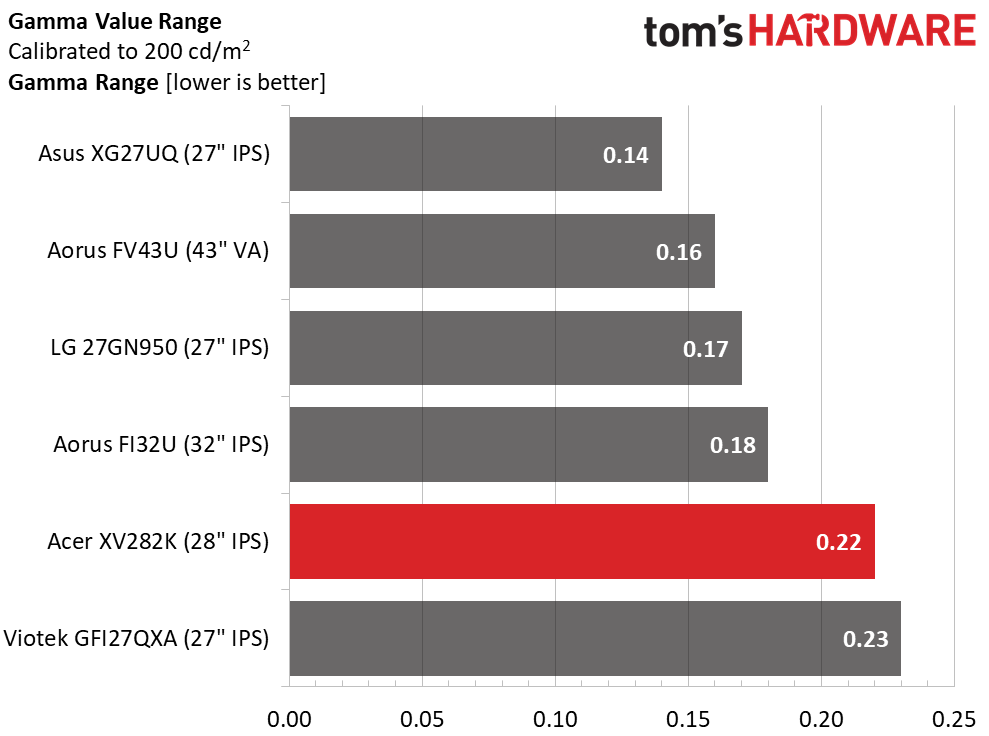
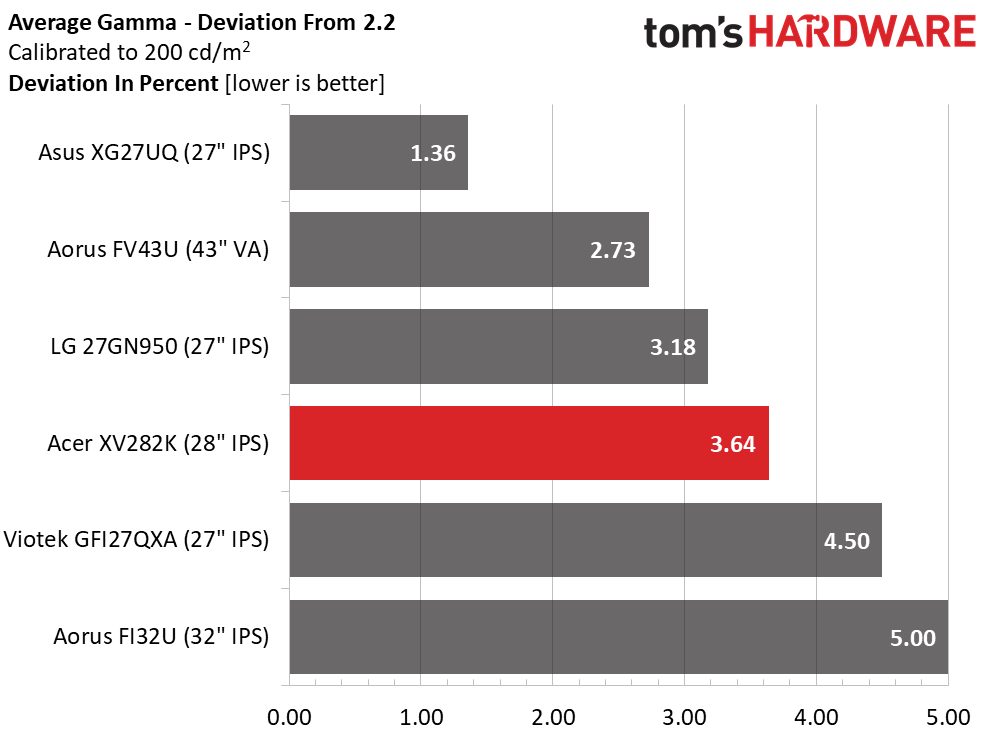
Though the XV282K is on the bottom of the default grayscale tracking comparison, 3.61dE is satisfactory for its price point. We recommend dialing in the settings on page 1 for an even better image. Our final measurement of 0.82dE was good enough for a solid third place. An average error value under 1dE is an excellent result.
The range of XV282K’s gamma values is reasonably tight but not quite as good as the top screens here. The deviation result stems from our choice to go for the 2.4 preset rather than 2.2. Both options miss the 2.2 reference, but 2.4 delivers a better image.
Color Gamut Accuracy
The XV282K’s native gamut covers most of DCI-P3 and is the default choice for both SDR and HDR content. If you want the smaller sRGB, Rec.709 or SMTPE-C spaces, those options are available albeit without any calibration options.
Get Tom's Hardware's best news and in-depth reviews, straight to your inbox.
Our color gamut and volume testing use Portrait Displays’ Calman software. For details on our color gamut testing and volume calculations, click here.
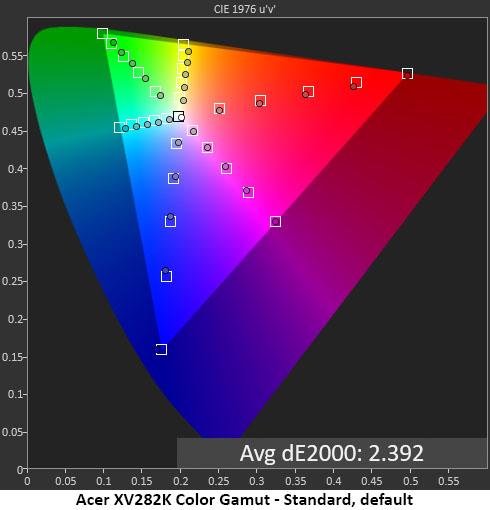
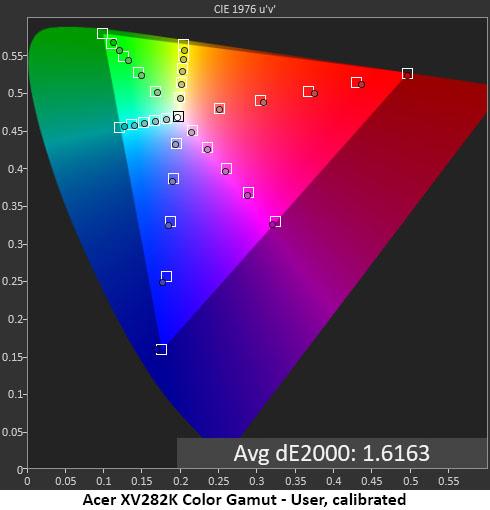
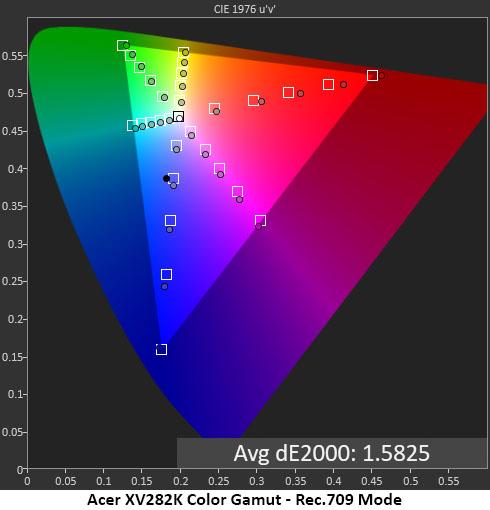
The XV282K’s default gamut measurement is a very good 2.39dE average. There are no visible errors here. Only green comes up slightly short of full saturation, a typical result for extended color monitors.
Using the calibration settings from page 1 lowered the error to 1.62dE, a difference barely visible to the naked eye. We saw slightly more red saturation, but the other colors looked unchanged.
If you choose the Rec.709 mode, color looks slightly oversaturated, but the average error is still very low at 1.58dE. The XV282K’s additional color gamut options are handy to have but, unfortunately, cannot be calibrated. That means no ability to change gamma or color temperature.
Comparisons
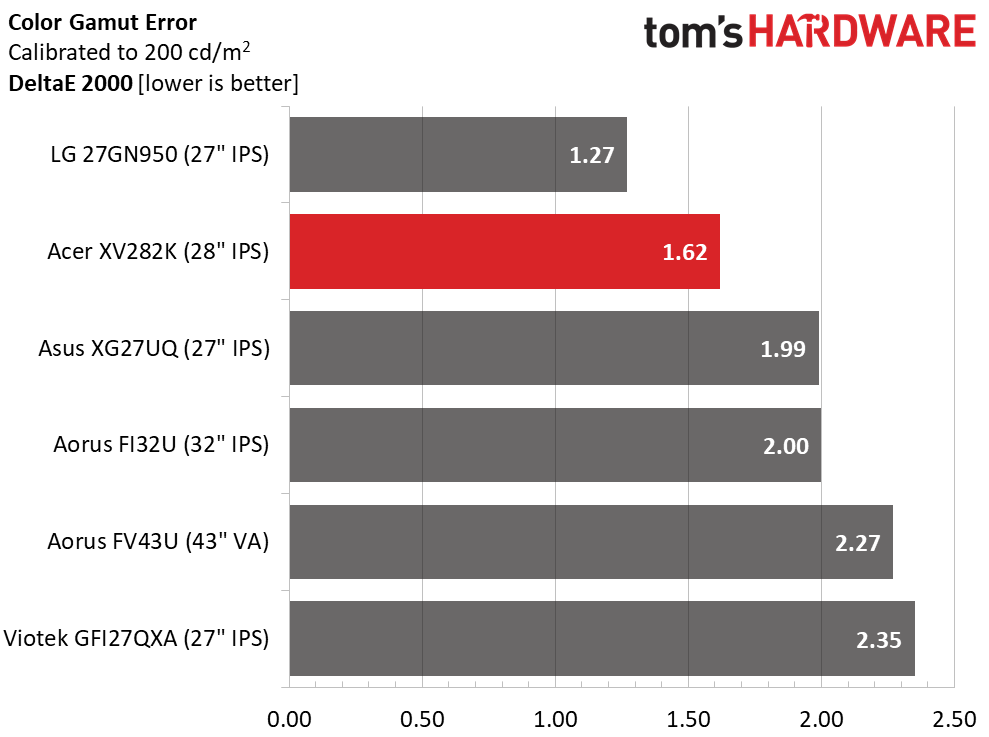
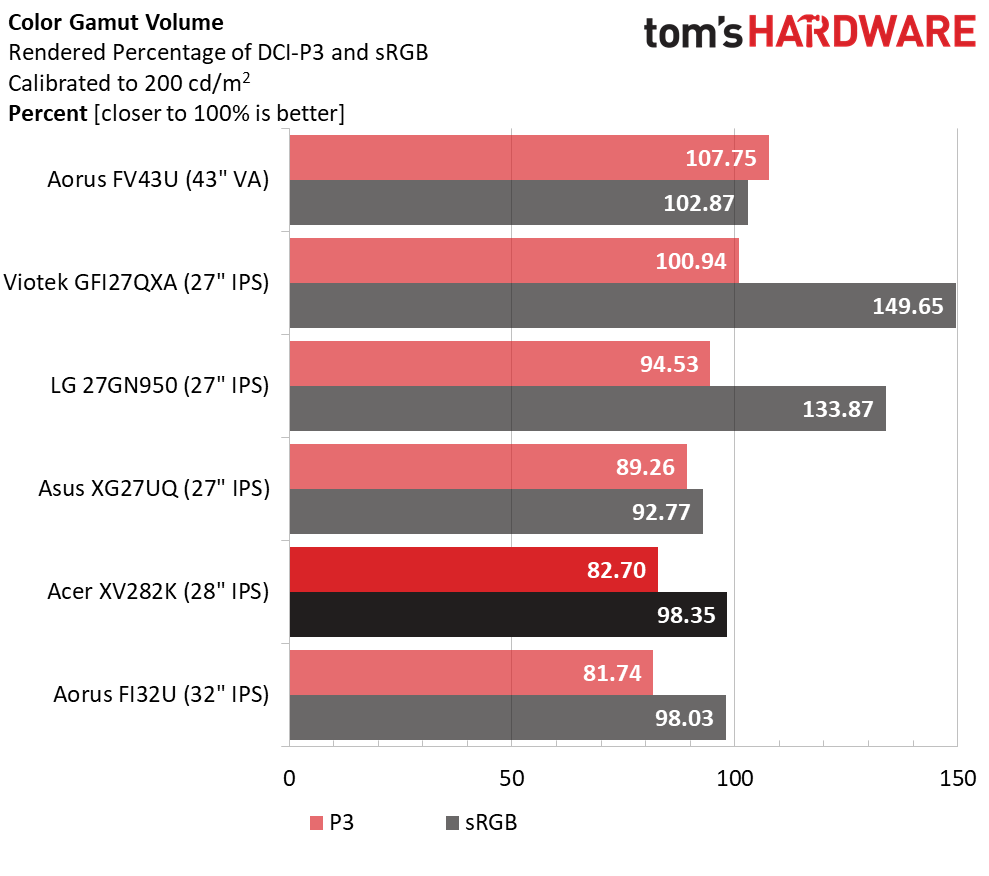
The XV282K beat all but the LG in our color gamut accuracy test, which compares all monitors to the DCI-P3 standard. In practice, the General color option is a good choice for both SDR and HDR content. SDR content looks a little oversaturated but still natural and detailed.
Though the XV282K takes fifth place in this group, it’s a very competitive field. The top three screens have some of the largest color gamuts we’ve ever measured. 82.7% is about average among extended color screens. The 98.35% sRGB figure was measured in the Acer’s Rec.709 mode. Rec.709 and sRGB share the same gamut spec and differ only in their gamma reference.
MORE: Best Gaming Monitors
MORE: How We Test PC Monitors
MORE: How to Buy a PC Monitor: A 2021 Guide
Current page: Grayscale, Gamma and Color
Prev Page Brightness and Contrast Next Page HDR Performance
Christian Eberle is a Contributing Editor for Tom's Hardware US. He's a veteran reviewer of A/V equipment, specializing in monitors. Christian began his obsession with tech when he built his first PC in 1991, a 286 running DOS 3.0 at a blazing 12MHz. In 2006, he undertook training from the Imaging Science Foundation in video calibration and testing and thus started a passion for precise imaging that persists to this day. He is also a professional musician with a degree from the New England Conservatory as a classical bassoonist which he used to good effect as a performer with the West Point Army Band from 1987 to 2013. He enjoys watching movies and listening to high-end audio in his custom-built home theater and can be seen riding trails near his home on a race-ready ICE VTX recumbent trike. Christian enjoys the endless summer in Florida where he lives with his wife and Chihuahua and plays with orchestras around the state.
-
Joseph_138 Holy crap, that price! This is obviously not a monitor for the masses. Just having a PC that can run games at 4k144 is going to cost you many thousands of dollars. This is a rich kids toy.Reply -
zodiacfml at $900, definitely a price improvement vs getting a 4K120 OLED TV. Still a long way to goReply -
wifiburger all these 4k high refresh panels are worthless at these price points.Reply
In no way I'm paying 4x the cost vs a good 4k 60hz panel !
I think I'll step down to 1440p panel in the future if I need high refresh rate.